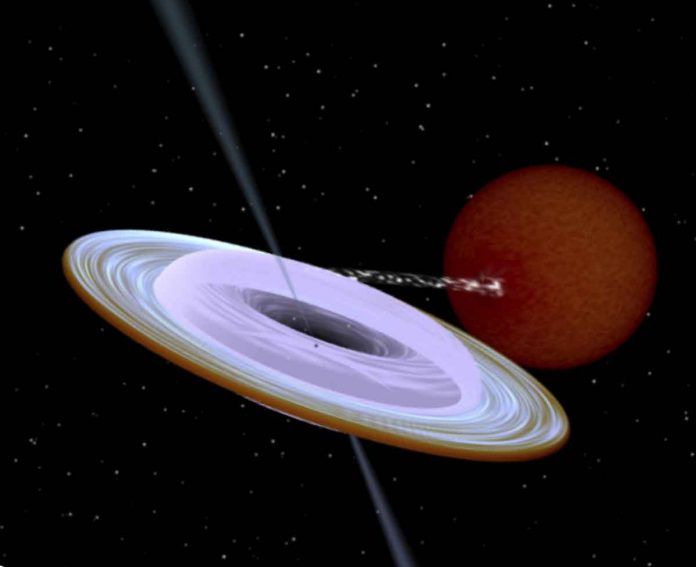University of Turku, Finland scientists have found that the axis of rotation of a black hole in a binary system is tilted more than 40 degrees relative to the axis of stellar orbit. These finding challenges current theoretical models of black hole formation.
This observation from Tuorla Observatory in Finland is the first reliable measurement which shows a large difference between the axis of rotation of a black hole and the axis of a binary system orbit. The difference between the axes measured by the scientists in a binary star system called MAXI J1820+070 was more than 40 degrees.
The rotation axis of a central massive body is to a high degree aligned with the rotation axis of its satellites. This is true for the solar system. The planets orbit around the sun in a plane. It roughly coincides with the equatorial plane of the sun. The inclination of the sun rotation axis with respect to orbital axis of the Earth is only 7 degrees.
Scientists were able to determine the direction of the axis of rotation of the black hole accurately, by following these jets. The amount of gas falling from the companion star to the black hole later began to decrease and the system dimmed. Scientists were able to measure the orbit inclination using spectroscopic techniques. It happened to nearly coincide with the inclination of the ejections.
The study has been published in science. It has opened interesting prospects toward studies of black hole formation and evolution of such systems. As extreme misalignment is hard to get in many black hole formation and binary evolution scenarios.
The finding was made by using the in-house built polarimetric instrument DIPol-UF mounted at the Nordic Optical Telescope. It is owned by University of Turku jointly with Aarhus University in Denmark.

